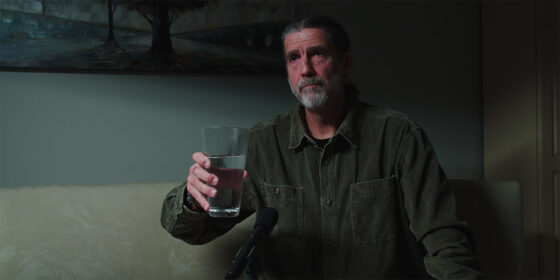Coppers (Alan Zweig, Canada) — TIFF Docs

By Angelo Muredda
“Cops are by far the biggest liars,” a subject admits early in Alan Zweig’s Coppers, which brings the filmmaker’s signature conversational style to bear on a profile of retired Toronto police officers, about a dozen of whom are interviewed at rest and in ride-alongs to the scenes of past arrests and disaster scenes. It’s a rare, genuinely revelatory moment in a documentary that often subsumes Zweig’s rascally voice in favour of an arm’s-length treatment of first responders, most of whom are suffering from post-traumatic stress disorder from the violence they’ve both seen and perpetrated.
Some will rightly bristle at Zweig’s decision to focus on such blue lives, and to raise questions about police brutality and systemic racism in the careful tone of someone who doesn’t wish to alienate his guests. One might fairly ask who this film serves, given its reluctance to take any sustained shots at the factors behind the suffering of both its subjects and the civilians who have found themselves on the other end of a police baton. But Zweig’s reluctance to prod his interviewees on subjects about which they are clearly eager to speak, often in halting but not uninteresting ways, does yield some unguarded testimony, moments where the masks of therapy, inter-officer bravado, and media training fall away. Zweig’s minimalist style, which is attentive to the quiet soundscape of turning signals and engine hums that characterize a night shift moments before an emergency call, also proves an appropriately non-invasive choice for presenting the officers’ gruelling stories of a job that curdles the soul, trades in abuse (both from suspects and other officers, in the case of the women and men of colour he interviews), and implicates even the most moral actors.
Angelo Muredda

